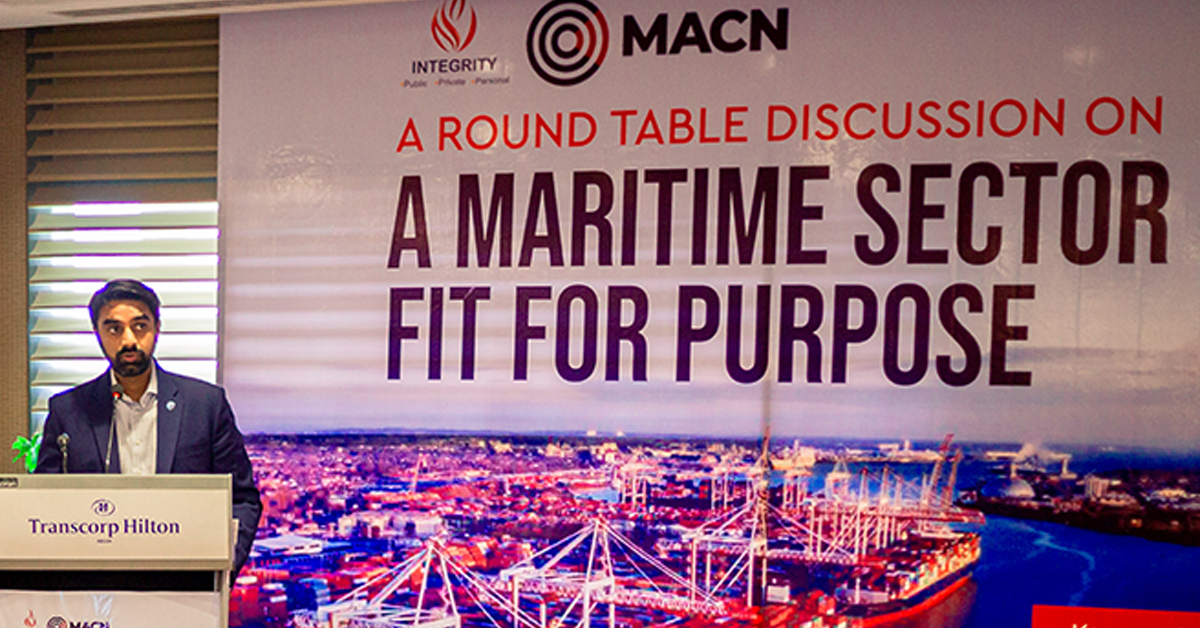
Following the damning report by the Maritime Anti-Corruption Network (MACN) which highlighted the severe financial and operational impacts of corruption at Nigeria’s ports, key stakeholders in the maritime industry have weighed in, confirming the persistence of these malaise and calling for urgent reforms.
In a chat with our correspondent, President of the Association of Nigerian Licensed Customs Agents (ANLCA), Mr Emenike Nwokeoji affirmed the accuracy of the report and lamented the unchanged situation at the ports.
“Nothing has changed, so the report is true. We are not feeling the impact of the Port Standing Task Team (PSTT) anymore. Until human contact is reduced, we can’t make progress in the fight against corruption. That’s just the bottom line,” he stated. Nwokeoji emphasized that reducing direct interactions between port officials and stakeholders is crucial to mitigating corrupt practices.
Similarly, in a conversation with our correspondent, Mohammed Sanni Bala, General Secretary of the Amalgamated Truck Owners of Nigeria (AMATO), expressed deep frustration over the ongoing extortion by both government and non-government actors along logistic corridors. “It’s no longer hearsay that government and non-governmental extortion bandits operate with impunity along Apapa/Tincan ports access roads.
“There are over 50 extortion checkpoints from Ijora Olopa and Mile 2 down to the Apapa and Tincan Ports gates, where truckers are being extorted daily by security and traffic operatives, as well as NURTW and RTEAN boys, and other hoodlums. They use crude and barbaric methods like beating up drivers to stupor, smashing trucks’ windscreens and cabs, deflating tires, cutting trucks’ brake control hoses, seizing license plates, dragging steering wheels with drivers, causing accidents, and more.”
Bala further elaborated on the severe impacts of these practices. “Extortion is the reason you see trucks in rickety conditions because money meant to maintain these trucks to meet minimum safety requirements is being collected forcefully by these extortion bandits, leaving truckers with peanuts. The Apapa/Tincan logistics corridors have become axes of spiritual extortion and corruption where truckers are massively extorted, looted, and brutalized under the pretense of providing security and controlling traffic.”
He continued, “The concepts of trade facilitation, ease of doing business, and seamless evacuation of cargoes from the ports are being butchered on the altar of extortion and corruption. The prioritization of revenue generation and extortion above security and traffic control by operatives is taking a serious toll on the effective free flow of traffic and security along the ports access roads. The port corridors have become safe havens for criminals and drug peddlers. Cargoes on trucks are being burgled by criminals during exits from the ports. All the bridge light facilities that are supposed to illuminate bridges at night have been stolen despite the presence of multiple security checkpoints. Hoodlums obstruct free traffic flow through indiscriminate parking of trucks. Hard drugs and alcohol are being sold to drivers, leading to dangerous driving conditions.”
“Despite the use of the call-up system, our trucks spend two to three weeks accessing the ports, due to terminal inefficiency and delays,” Bala noted. “Governments at both state and federal levels must implement sincere policy measures to address the problems of extortion, corruption, and terminal inefficiency to achieve the goals of trade facilitation, ease of doing business, seamless evacuation of cargoes, and security of life and property in our ports environment.”
Kunle Ajayi, a truck owner, also shared his experiences in a candid discussion with our correspondent. Ajayi painted a grim picture of the entrenched corruption within the maritime sector, stating, “Corruption has eaten into every person in Nigeria. In the maritime process, it has become a normal thing, seen more like deals rather than corruption. We see and complain about paying for tickets that appear to legalize corruption. Officials use fabricated receipts to extort money from truckers. The traffic in Lagos is not just by the number of cars or trucks, but by the corruption processes on the road.”
Ajayi provided specific examples of how corruption manifests in daily operations. “If you don’t pay, you remain stuck, causing human-induced traffic jams. There was an instance where officials used a marker to alter the amount on a receipt from 2,000 to 3,000 Naira. This type of corruption is rampant, and it’s legalizing what should be considered illegal acts. We argue about who these people collecting these receipts are and why Lagos State allows such practices,” he explained.















